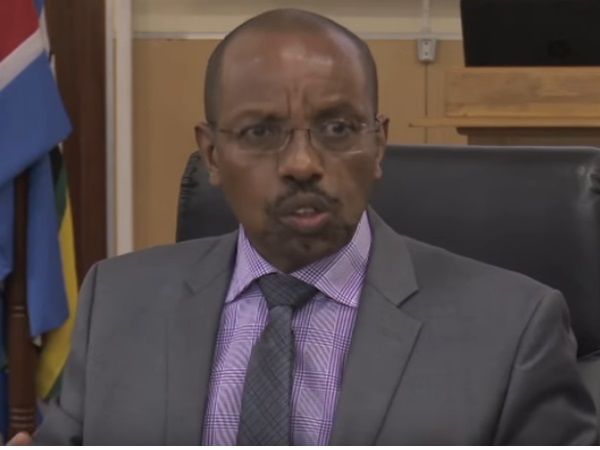As the government prepares to mobilize the already scarce revenue through tax collection to finance the coming 2018/2019 National Budget worth 29.2 trillion shillings its getting worried by its own expenditures. “But nobody can intimidate me, it’s a national institute that we must do, why wouldn’t you want to be audited? So am going to institute some of those areas that say why we are or continuously having these problems.” Said, Keith Muhakanizi – PS, Ministry of Finance and Planning. The Ministry of Finance warned that it was getting fatigued by the perpetual demand to allocate resources across spending entities even when only 40% was accounting for the quarterly releases. “Over the next five years; the flexibility room to play around is very limited. The room for resource allocation flexibility may not be even there, it is very little.”
Keith Muhakanizi the Secretary to the Treasury was speaking alongside the UNICEF Country Director Dr. Doreen Mulenga while launching the National Social Service Delivery Online Equity Atlas. “Today’s launch for us represents an important milestone in an effort to support the government successfully transition to results-oriented Program Based Budgeting. With special attention to identifying key areas of investment that improve the well-being and development of all children in Uganda.” Said, Dr. Doreen Mulenga – Country Director, UNICEF.
In the coming Financial Year as highlighted in the Budget Framework Paper, some key service sectors are set to have cutbacks in allocation. Education 2.4 trillion shillings which is 11% from 2.5 trillion shillings, Health will receive 1.6 trillion shillings from 1.8 trillion shillings and Social Development 175.1 billion shillings from 175.8 billion shillings. “More recently we’ve also been involved as part of this project at analyzing the influx of refugees that have come into this country and how they are likely to affect our service delivery in parts of Uganda since many of them are concentrated in West Nile.” Said, Ibrahim Kasirye – Senior Economist, EPRC.

